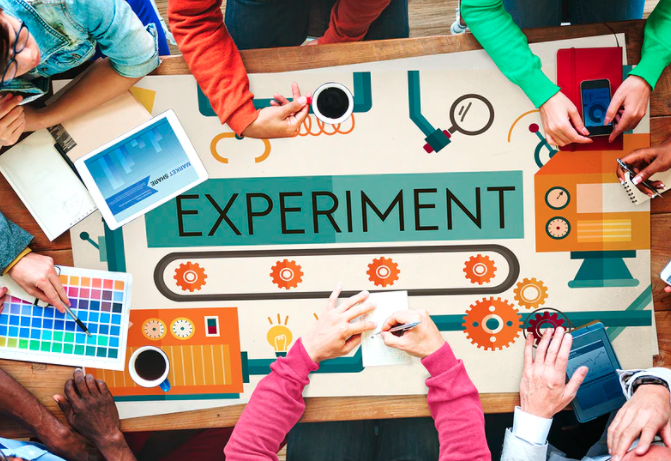Why Now?
It’s a great time to create a culture of experimentation precisely because of what’s happening today. People want to bring their creativity to work. And it’s an innovation imperative. If we’re not nurturing employees’ creativity, we’re compromising their development and missing out on potentially transformational insights that move creative leadership efforts, products and revenues forward.
Employees Want to Experiment
And, while people want to be creative, they may not always feel safe experimenting at work. The most important part of a true culture of experimentation is that leadership views experimenting as part of every job. Leaders and execs at every level need to support that message with credible proof, rewards, stories and recognition.
The Leadership Challenge
Too often leaders don’t do enough to prioritize the psychological safety that drives experimenting. If we want more experimentation, leaders must do more to make it safe to try, fail, and learn across the organization. I’d add that it’s critical for HR and every manager to be super KPI-horny about human measures that show that people are taking risks.
That means tracking indicators including collaboration, ideas generated, and incremental improvements in CX, for example – not just outcomes. The point is to reward the process that leads us to great outcomes.
Characteristics of a Culture of Experimentation
So, how do you know if your culture is supporting experimentation optimally? The short answer is that experiment-driven cultures have consistent hallmarks:
- They support psychological safety
- They reward, nurture and encourage experimentation at every level
- They communicate credibly that it’s part of their culture and it’s everyone’s job
- They openly discuss degrees of freedom so daily experiments happen even in small increments
- They measure it in several ways: not just in ROI, but in human, growth and idea quality / quantity
Benchmarking Your Experimentation Capacity
How is your organization doing here? In order to better assess your particular environment’s experimentation capacity, here are a few questions to ask and answer honestly:
- Do people feel safe experimenting?
- Are people rewarded for taking new risks?
- Are people expected to take new risks as part of their job?
- Do people know how much risk they can take without approval?
- Are people sharing ideas freely in teams?
- Do executives and managers lead by example?
- Do people feel that innovation is welcomed, rewarded and encouraged and every level?
- Do people have freedom to create new ideas at work?
- Are new ideas – even if they don’t work – celebrated?
- Does your company (and execs) reward experiments as well as outcomes?
- Does your company reward collaboration within teams as well as across teams?
- Does your company support experimentation with recognition, visibility and resources?
Can you answer ‘yes’ to most of these? Great. If not or you are not sure, it’s OK.
Need support? Let me know how I can help.
**********************************************************
Kathy Klotz-Guest helps leaders and teams break the old rules about innovation and storytelling. An improviser and comedian as well as an MBA, MA who ran tech teams for years, Kathy brings interactivity, humor, energy and innovation to events, talks, and workshops. She’ll have your audience laughing and learning and that’s what it’s all about. Well, *that* and the hokey pokey.
Interested in having her speak at your company? Contact Kathy.



